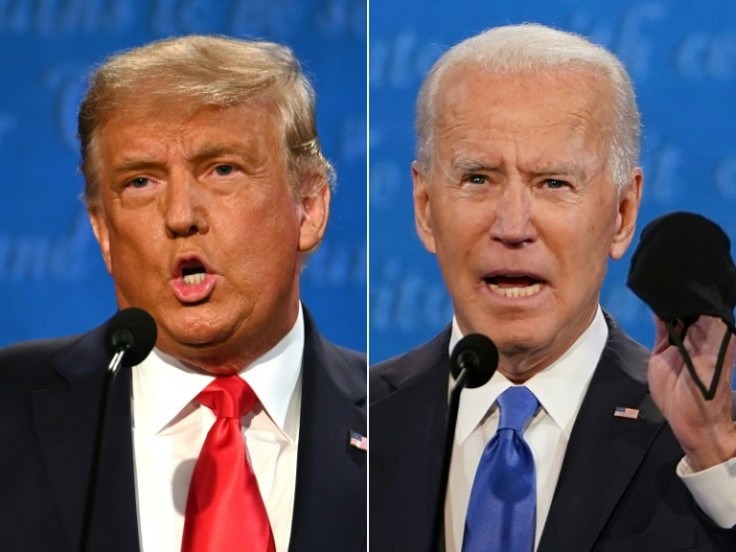
Half of swing state voters believe violence will surround this year's presidential elections, according to a new Bloomberg/Morning Consult poll. Roughly the same proportion of Democrats and Republicans hold this belief, the proportion being higher for independents.
Misinformation and foreign interference in the process are also concerns, with about six in ten saying they don't trust the election will be free of the former, and 46% expressing concern about the latter.
Unease about the electoral process and its aftermath has expanded to different scenarios, a sizable amount of voters also fear Trump will seek to stay in the White House indefinitely if elected in November.
The David Binder Research group first noticed this fear when conducting a focus group on people who had voted for Biden in 2020 but considered switching to the other side in 2024.
Republican strategists have been conveyed the same fear, Bloomberg reports. "It's showing up in our focus groups," said Sarah Longwell, CEO of Longwell Partners and publisher of the conservative website the Bulwark.
One example that seems to be backing up these concerns is the riot on Capitol Hill on Jan. 6, 2021, when Trump supporters, with his encouragement, tried to halt the certification of the 2020 presidential election to keep in power. Similarly, in a 2022 social media post, Trump called to "terminate" parts of the Constitution in response to the election fraud he falsely asserted had taken place in 2020 and prevented him from winning a second term in office.
Last December, Fox News host Sean Hannity invited Trump to tamp down voter concerns about his use of authoritarian rhetoric. Instead, the former president insisted he would be a "dictator" only on "Day 1" of his presidency. But in a recent Time interview, he said that comment was made "in jest."
However, many Trump supporters might be inclined to support such an approach. A PRRI study from this year profiled Christian nationalism as a new demographic, grouping about 30% of the country.
The study examined how religion, party, education, race, and other factors intersect with Christian nationalist views, showing a propension to support the Republican Party, Donald Trump and political violence.
The group is comprised by people from all ethnicities and has been described by PRRI's president and founder, Robert P. Jones, as one that holds an "anti-democratic worldview that has been with us since the founding of our country — the idea that America was designated by God to be a Christian country where white Christians occupy the highest positions of power and laws are judged to be valid based on their particular interpretation of the Bible."
Overall, three in ten Americans qualify as Christian Nationalist Adherents (10%) or Sympathizers (20%), according to the PRRI study. The figure stands in contrast with 37% of skeptics and 30% of rejecters.
In terms of ethnicity, the study showed little variation across groups consulted. 20% of Latino respondents considered themselves sympathizers, while 9% were adherents. The figure was quite similar to Whites (20% of sympathizers, 10% of adherents) and Blacks (21% sympathizers, 12% adherents). "The only racial group whose members are significantly less likely to do so is Asian American and Pacific Islanders (12% Sympathizers, 5% Adherents)," according to PRRI.
Perhaps that's why many uncommitted voters perceive these threats as real, Bloomberg explained.
"When we ask about his record on democracy, there's a lot of general concern— even among Republicans— about what a second Trump term might be like," said Bryan Bennett, a pollster with Navigator Research, a Democratic-aligned firm. A recent Quinnipiac University poll found that 21% of independent voters and 8% of Republicans indicated that "preserving democracy in the United States" was the most critical issue facing the country.
But, is changing the 22nd Amendment, which limits presidents to only 2 terms, actually possible? It is, but it would be extremely difficult, Bloomberg argues.
To do so, it would require a two-thirds majority vote in the House and Senate or a constitutional convention called by two-thirds of the state legislature, after which any amendment would need to be ratified by three-quarters of the state.
© 2024 Latin Times. All rights reserved. Do not reproduce without permission.







